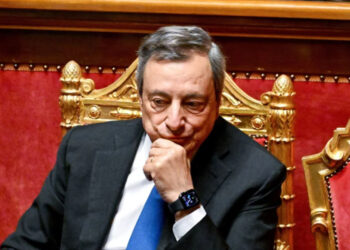After German Chancellor Angela Merkel suggested that European Union membership negotiations with Turkey would be terminated entirely, other E.U. nations urged the preservation of the process despite problems with Ankara’s candidacy.
“The fact is clear that Turkey should not become a member of the E.U.,” Ms. Merkel said on Sunday during a televised election debate with her main rival, Martin Schulz.
Ms. Merkel’s remarks prompted a swift reaction from the Turkish side. Following her comments, Turkish President Recep Tayyip Erdogan called on the E.U. to decide whether to continue membership talks or abandon them entirely.
“It is up to the E.U. to take a step. Either they will keep their promise and open the path of the membership process,” Mr. Erdogan said, adding “or they need to say ‘We don’t want to continue on the path with Turkey.'”
Berlin’s tougher stance toward Turkey has opened cracks within Europe over how to deal with the prospect of Turkey’s E.U. membership. This week, French President Emmanuel Macron said ties with Ankara should be maintained even if the country diverts from its path to the E.U. In remarks to Greece’s Kathimerini newspaper, Mr. Macron acknowledged that the current state of relations between Turkey and the bloc is not in good shape.
“Turkey has indeed strayed away from the European Union in recent months and worryingly overstepped the mark in ways that cannot be ignored,” Reuters quoted Mr. Macron as saying.
But the French president warned against tearing up the process, urging that cooperation is necessary to combat terrorism and curb the flow of migrants and refugees from Turkey to Europe.
Mutual mistrust
The current state of ties between Turkey and the E.U. are due largely to mutual mistrust that does not instill confidence on either side about the prospect of Ankara achieving full-fledged membership.
Tensions have increased in the year since the failed coup attempt, after which Turkey declared a state of emergency, effectively removing safeguards that served as checks on Mr. Erdogan’s powers.
The E.U. appeared to be the most vocal critic of the post-coup crackdown on Mr. Erdogan’s political opponents and a purge campaign that saw more than 150,000 public servants sacked.
“It’s very difficult today for Turkey to get into the European Union, but we cannot close the chapter,” European Parliament Antonio Tajani said in an interview with Politico on Wednesday.
He further echoed Mr. Macron’s line of argument regarding the bloc’s relationship with Turkey, saying “The dialogue must be open because we have the problem of migration and the fight against terrorism.”
Mr. Tajani said the reinstatement of the death penalty by Ankara would be a red line to shutter the talks entirely.
The officials’ statements speak to the nature of the dilemma currently defining the E.U. attitude toward Turkey. When pressed to choose between the urgent demands of realpolitik and its core values, Brussels has sent signals that it might grudgingly accept to work with Ankara.
Still, E.U. officials are aware of a possible coming crunch. A complete shutdown of doors against Turkey would instigate unintended consequences that Brussels may not be ready to face.






















